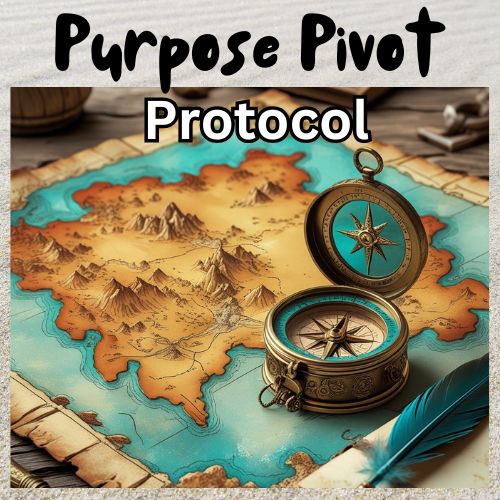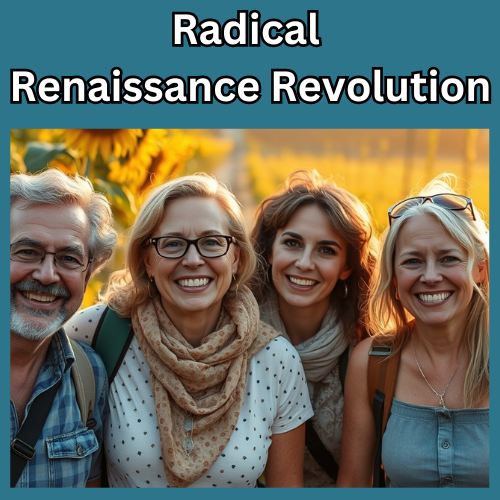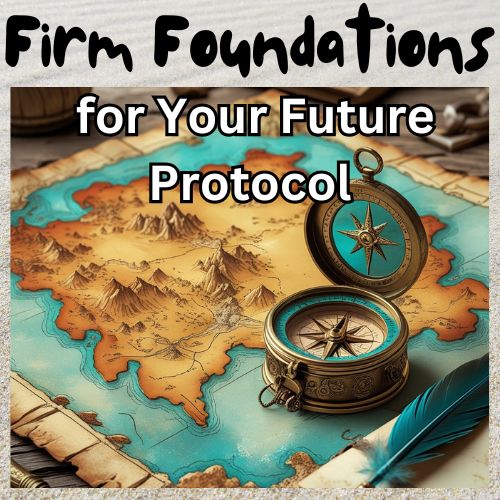The Short Answer: You are still the same person you were before your retirement, the one who always gave your all—but now, your time is yours. You get to slow down, speed up, and change course. No deadlines, no rules—just your own rhythm. Who are you now? Whoever you want to be. You’re no longer defined by a job title—you’re defined by what matters to you. Retirement isn’t retreat; it’s a return—to yourself.
Picture this: You wake up on a Tuesday morning, and for the first time in decades, you don’t have to be anywhere. No meetings, no deadlines, no performance reviews looming. The alarm clock sits silently on your bedside table. You make coffee at your own pace, watch the steam curl upward in the morning light, and suddenly it hits you like a freight train carrying existential cargo: Who, and what, am I now?
If you’ve found yourself staring into the mirror wondering who the person staring back is, you’re not alone. The question “Who am I now that I have retired?” might be one of the most important—and most terrifying—questions you’ll ever ask yourself.
But here’s what I’ve learned after helping dozens of people navigate this transition: retirement isn’t about becoming someone new. It’s about remembering who you were before the world told you who you needed to be.
Luke’s Liberation: A Story of Rediscovery
Luke Hamilton had been an accountant for thirty-seven years. Not just any accountant—the accountant. The one who never missed a deadline, who could spot a discrepancy from across the room, who wore his reputation like a perfectly pressed suit. His colleagues called him “The Calculator” behind his back, though Luke pretended not to know.
The morning of his retirement party, Luke stood in his corner office, running his fingers along the edge of his mahogany desk. The wood felt smooth, almost warm, worn down by decades of his forearms resting against it during late-night sessions. The familiar scent of coffee and printer toner hung in the air like incense in a chapel he was about to abandon.
“Thirty-seven years,” he whispered to the empty room, his voice echoing off walls lined with certificates and awards—evidence of a life lived in service to numbers that would outlive him.
The retirement party was everything you’d expect: lukewarm coffee, sheet cake that tasted like sweet cardboard, and speeches about his “dedicated service.” Luke smiled and nodded, shaking hands that felt increasingly foreign to him. Each congratulation felt like a small funeral for the man he’d been.
Three months later, Luke found himself sitting in his kitchen at 10 AM on a Wednesday, still in his pyjamas, staring at a crossword puzzle he couldn’t concentrate on. The house creaked around him like old bones settling. The refrigerator hummed its monotonous tune. Outside, a neighbour’s dog barked at something only it could see.
“My life used to have a purpose,” he said aloud, surprising himself with the rawness in his voice. The words hung in the air like smoke.
That afternoon, while cleaning out his study, Luke discovered a shoebox buried beneath old tax returns. Inside, wrapped in tissue paper yellow with age, was a small wooden bird he’d carved in high school. His fingers traced the delicate curves of the wings, remembering how the wood had felt beneath his teenage hands, how the sweet smell of cedar shavings had filled his father’s garage.
The memory hit him like a physical blow: when he was 17, he had wanted to be an artist, a woodcarver. Not an accountant.
Luke drove to the hardware store that very day, his hands trembling slightly as he selected his first set of carving tools in forty years. The clerk, a young woman with paint-stained fingernails, smiled at his excitement. “Starting a new hobby?” she asked.
“No,” Luke said, surprising himself again. “I’m resurrecting an old dream.”
The first piece he carved was rough, imperfect—a small owl with slightly crooked eyes. But as he worked, something magical happened. The smell of fresh wood shavings transported him back to his seventeen-year-old self, full of possibility and undistracted by the weight of “sensible” career choices. His hands, soft from decades of keyboard work, began to remember their strength.
Months passed. Luke’s dining room table became a workshop. Wood dust settled into the creases of his fingers like old friends returning home. His wife, Margaret, would find him there at dawn, coffee growing cold beside him, completely absorbed in breathing life into a piece of maple or oak.
“You’re different,” she told him one evening, watching him sand a delicate jewellery box. “You’re… brighter.”
Luke paused, considering her words. She was right. The weight he’d carried—the constant pressure to be The Calculator, to live up to everyone’s expectations—was fading. In its place was something he’d almost forgotten existed: pure, unblemished joy.
“I’m not different,” he said, blowing wood dust from the smooth surface. “I’m just… the real me, again.”
The jewellery box was for his granddaughter Emma, who had always been fascinated by his “magic hands.” When he presented it to her, complete with a hidden compartment he’d carved into the base, her eyes widened with the kind of wonder that reminded him why he’d loved creating things in the first place.
“Grandpa,” she said, running her small fingers over the intricate rose he’d carved into the lid, “this is the most beautiful thing I’ve ever seen.”
Luke felt tears prick his eyes. He realised then that retirement hadn’t taken away his identity—it had given it back to him. He wasn’t less than he had been; he was finally free to be who he’d always been beneath the professional mask.
Six months later, Luke opened a small workshop in his garage. Word spread through the neighbourhood about the accountant who’d become an artist. Orders trickled in—custom cutting boards, personalised jewellery boxes, memorial pieces for grieving families. Each piece carried a part of his rediscovered soul.
Luke had learned the secret that so many retirees struggle to understand: retirement isn’t about losing who you were. It’s about finding who you could have been.
Five Key Post-Retirement Takeaways
1. You Are Not Your Job Title
Your profession was something you did, not who you were. The essence of you—your values, your passions, your unique way of seeing the world—remains untouched by the end of your career. As Maya Angelou once said, “If you don’t like something, change it. If you can’t change it, change your attitude.”
2. Permission to Disappoint Others
Retirement gives you the radical freedom to disappoint everyone else’s expectations of who you should be. You no longer need to be the responsible one, the reliable one, the one who always says yes. You can finally say no to obligations that don’t serve your authentic self.
3. Your Dreams Have No Shelf Life
Those dreams you shelved for “practical” reasons? They’re still there, waiting. It’s never too late to pick up that guitar, start that novel, learn to paint, or yes—carve wooden birds. Time doesn’t destroy dreams; fear does.
4. Identity Is Fluid, Not Fixed
You’re not frozen in amber at 65. You’re still growing, still evolving, still becoming. Retirement is just another chapter in your story, not the epilogue. Embrace the beautiful uncertainty of not knowing exactly who you’ll be tomorrow.
5. Purpose Doesn’t Retire
Your sense of purpose doesn’t disappear with your career. It pivots. Maybe your purpose shifts from climbing corporate ladders to teaching grandchildren, from managing teams to volunteering at the animal shelter, from making money to creating meaning.
The Archaeology of Retirement
Set aside an hour when you won’t be interrupted. Find a comfortable spot with a pen and paper (not a computer—there’s something about handwriting that accesses different parts of our consciousness).
Write a letter to your 17-year-old self. In this letter, describe who you were before the world told you who you had to be. What did you dream about? What made you lose track of time? What did you believe about your own potential?
Then, write a response from your 17-year-old self to your current self. What would that younger you think about the life you’ve lived? What would they be proud of? What would they be disappointed by? What would they be excited to try now that you have the freedom to choose?
Don’t edit yourself. Let the words flow like water finding its level. You might be surprised by what emerges.
Additional Exercises for Identity Rediscovery
The Five Senses Memory Map: Choose five objects from your pre-career life (a photograph, a book, a piece of music, a recipe, a tool). Spend time with each one, noting what you see, hear, smell, taste, and feel. Write about the memories they evoke and the person you were then.
The Energy Audit: Make a list of everything you’ve done in the past month. Next to each item, write whether it energized you (+), drained you (-), or felt neutral (0). Look for patterns. What themes emerge from your “+” activities?
The Dinner Party Test: If you could invite any five people (living or dead) to dinner, who would they be? What would you want to talk about? This reveals what truly interests you, beyond career obligations
Viktor Frankl, who survived the Nazi concentration camps, wrote: “Everything can be taken from a man but one thing: the last of the human freedoms—to choose one’s attitude in any given set of circumstances.” Retirement gives you the ultimate freedom to choose your attitude about who you are and who you’re becoming.
Carl Jung observed that “the privilege of a lifetime is being who you are.” Retirement is perhaps the first time in decades that you have the space and permission to fully exercise that privilege.
Discover Your Purpose with the Purpose Pivot Protocol
If Luke’s story resonates with you, you’re not alone in feeling lost in the transition from career to retirement. The good news? You don’t have to navigate this journey alone.
My Purpose Pivot Protocol is specifically designed for people like you—accomplished professionals who know they have more to offer but aren’t sure where to start. Through a combination of self-discovery exercises, practical planning tools, and personalised coaching (if you choose), you’ll uncover your authentic purpose and create a roadmap for your next chapter.
For those ready to build a solid foundation for their future, my Firm Foundations for Your Future Protocol provides the practical framework you need to turn your newfound purpose into a sustainable, fulfilling lifestyle. Both courses can be taken with optional one-on-one coaching for those who want extra support.
Because here’s the truth: retirement isn’t about ending your story—it’s about beginning the chapter you were always meant to write.
Frequently Asked Questions about Retirement
Q: Is it normal to feel lost after retirement? A: Absolutely. You’ve just left an identity you’ve held for decades. Feeling disoriented is not only normal—it’s healthy. It means you’re taking the transition seriously and giving yourself permission to grieve what you’ve lost while exploring what you might gain.
Q: What if I discover I want to do something completely different, but it’s too late to start over? A: “Too late” is a story you tell yourself, not a fact. Colonel Sanders was 62 when he started KFC. Laura Ingalls Wilder didn’t publish her first Little House book until she was 64. Your age isn’t a barrier—it’s valuable, reusable experience.
Q: How do I handle family and friends who expect me to be the same person I was during my career? A: Set boundaries with love. Explain that retirement is giving you the chance to explore different aspects of yourself. Some people will understand; others won’t. That’s their journey, not yours. You’re not responsible for managing other people’s expectations of who you should be.
Q: What if I try new things and I’m not good at them? A: Perfection is overrated. The goal isn’t to become an expert overnight—it’s to reconnect with the joy of learning and growing. Every expert was once a beginner. Every master was once a disaster. The point is to play, explore, and discover.
Q: I feel guilty about having fun in retirement when I should be more serious about this stage of life. A: Who says you should be serious? You’ve been serious for 40+ years. Maybe it’s time to be playful. Fun isn’t frivolous—it’s fundamental to human happiness. You have permission to enjoy this phase of your life. In fact, you owe it to yourself to do so.
The Final Word
Retirement doesn’t end your story—it liberates it. You’re not less than you were; you’re finally free to be who you’ve always been beneath the professional mask. The question isn’t “Who am I now that I have retired?” The question is “Who do I want to become now that I’m free?”
Like Luke with his wooden birds, your authentic self is waiting to be rediscovered. Your purpose hasn’t retired—it evolved. And your best chapters? They’re still being written.
The person you were before the world told you who you had to be is still there, waiting patiently for you to remember. Retirement is simply the invitation to come home to yourself.
So who are you now that you have retired? You’re the same person you’ve always been, finally free to be yourself.
Ready to discover who you really are beneath the professional mask? Explore the Purpose Pivot Protocol and begin your journey of rediscovery today.
Stay in contact! Subscribe to my Retreat Mailing List for regular updates about my retreats.

The Purpose Pivot Protocol – drawing inspiration from the Camino de Santiago, this transformative course guides you through a proven framework to recalibrate your authentic purpose and create a meaningful and fulfilling next act. Get immediate access

Ready to start again, stronger than ever before? This quiz will help you find out. It is not just about measuring where you are right now; it’s about shining a light on the areas of your life that feel meaningful, as well as those that might need attention. It’s an opportunity to reflect, recalibrate, and take steps toward a life that’s not only successful but profoundly fulfilling. Take The Quiz

Firm Foundations for Your Future Protocol – a fast-paced, high-impact, future-focused course that facilitates the construction of identity-shaping stories about your future self so that you can make the changes needed to avoid having to go through big life changes again and again—without needing to process your past in depth and in detail.

